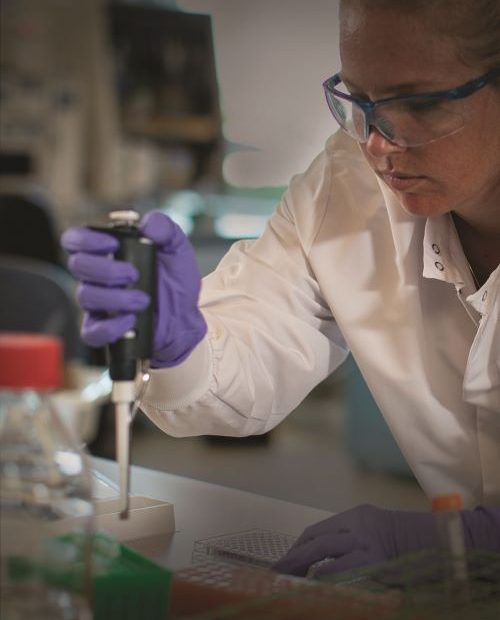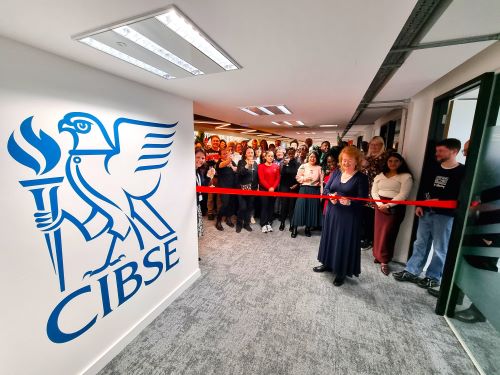Five Year Follow-Up Data of Pfizer’s CROWN Trial Shows Prolonged Progression-Free Survival in ALK-Positive Advanced Lung Cancer

Pfizer has announced longer-term follow-up results from the Phase 3 CROWN trial, evaluating Lorlatinib, a lung cancer treatment in people with previously untreated, anaplastic lymphoma kinase (ALK)-positive advanced non-small cell lung cancer (NSCLC).
After five years of median follow-up, median progression-free survival (PFS) based on investigator assessment showed an 81 percent reduction in the rate of disease progression or death compared to Crizotinib. Further, 60 percent of patients treated with Lorlatinib were alive without disease progression after five years compared to 8 percent on the Crizotinib treatment arm. The CROWN clinical trial involved 296 people with previously untreated ALK-positive advanced NSCLC. The treatment is currently available across several countries in MENA region, including GCC, Egypt, Lebanon, Jordan and Morocco.
“These results from the CROWN trial are unprecedented, as the majority of patients on Lorlatinib are living beyond five years without disease progression,” said Roger Dansey, M.D., Chief Development Officer, Oncology, Pfizer. “These results are an excellent example of Pfizer’s long-standing commitment to discovering and developing scientific breakthroughs for patients, and support Lorlatinib as a standard of care for the first-line treatment of people with ALK-positive advanced NSCLC.”
Lung cancer is the second deadliest cancer in the MENA region accounting for around 10 percent of all cancer deaths[i]. Survival rates for lung cancer remain relatively poor in the MENA region, with a 5-year survival rate estimated at eight percent, compared to the global range of nine to sixteen percent[ii], suggesting a high incidence of diagnoses at advanced stages[iii]. The prevalence of lung cancer in the MENA region is affected by several factors, including smoking habits, exposure to environmental pollutants, and genetic predisposition.
Commenting on the announcement, Yasser El Dershaby, Vice President and Regional Medical Lead at Pfizer Middle East, Russia, and Africa MERA) said, “We are delighted to share the significant progress achieved in the CROWN trial for ALK-positive advanced non-small cell lung cancer. This breakthrough brings renewed hope to patients across the Middle East and Africa, where lung cancer remains a critical health challenge. Pfizer’s unwavering commitment to advancing healthcare in the region is exemplified by our dedication to bringing the latest and most effective treatments to patients. By increasing accessibility to cutting-edge therapies, we are not only enhancing the quality of care but also contributing to the overall improvement of patient experiences in the region.”
Globally, lung cancer is the number one cause of cancer-related deaths[iv]. NSCLC accounts for approximately 80-85 percent of lung cancers,[v] with ALK-positive tumors occurring in about 3-5 percent of NSCLC cases.[vi] Approximately 25-40 percent of people with ALK-positive advanced NSCLC may develop brain metastases within two years from initial diagnosis.[vii] The treatment involved in the CROWN clinical trial was specifically designed and developed by Pfizer to inhibit tumor mutations that drive resistance to other ALK inhibitors and to penetrate the blood brain barrier.
“ALK-positive advanced NSCLC is typically aggressive and often impacts younger people in the prime of their lives,” said Benjamin Solomon, MBBS, Ph.D., Department of Medical Oncology, Peter MacCallum Cancer Centre, and Principal Investigator of the CROWN trial. “This updated analysis shows that Lorlatinib helped patients live longer without disease progression, with the majority of patients experiencing sustained benefit for over five years, including nearly all patients having protection from progression of disease in the brain. These improvements in outcomes for patients with ALK-positive NSCLC represent a remarkable advancement in lung cancer.”
“Although ALK-positive advanced NSCLC accounts for only approximately five percent of all NSCLC cases, this translates to 72,000 people who are diagnosed worldwide each year,” said Kenneth Culver, M.D., Director of Research and Clinical Affairs at the non-profit organization ALK Positive. “These new results of the CROWN trial symbolize significant progress in the first-line setting for the targeted treatment of ALK-positive lung cancer, which has led to notable improvements for the patient community.”
Besides smoking, exposure to environmental pollutants and occupational hazards can contribute to the prevalence of lung cancer in the Middle East and Africa. Indoor air pollution resulting from the use of solid fuels for cooking and heating, especially in rural areas, has been identified as a risk factor. Moreover, occupational exposures to carcinogens, such as asbestos, silica, and heavy metals, are common in certain industries, including mining, construction, and manufacturing, further increasing the risk of lung cancer.
ALK-positive NSCLC is caused by a mutation in the ALK gene[viii]. The mutation results when the ALK gene becomes fused with another gene, but it is unknown why this occursviii. This specific type of cancer is typically found in younger age groups with half of ALK-positive advanced NSCLC cases diagnosed before 50 years oldviii.
Last Updated on 8 months by News Desk 2













